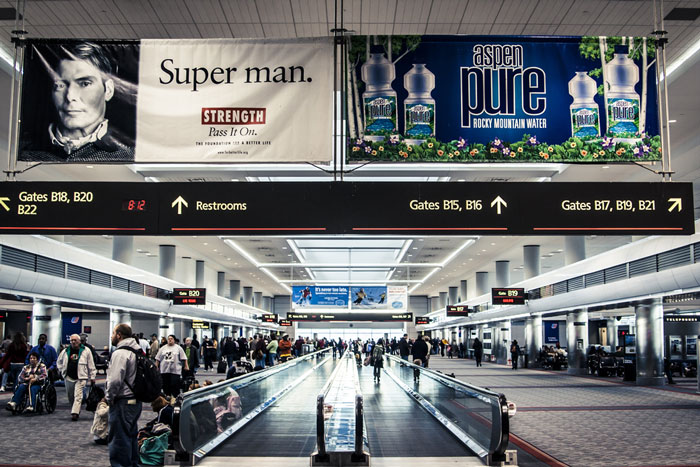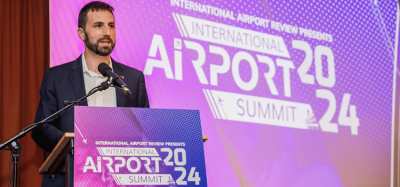Constant threat of mass shootings prompts call for better training
- Like
- Digg
- Del
- Tumblr
- VKontakte
- Buffer
- Love This
- Odnoklassniki
- Meneame
- Blogger
- Amazon
- Yahoo Mail
- Gmail
- AOL
- Newsvine
- HackerNews
- Evernote
- MySpace
- Mail.ru
- Viadeo
- Line
- Comments
- Yummly
- SMS
- Viber
- Telegram
- Subscribe
- Skype
- Facebook Messenger
- Kakao
- LiveJournal
- Yammer
- Edgar
- Fintel
- Mix
- Instapaper
- Copy Link
Posted: 18 October 2017 | International Airport Review | No comments yet
Joining workers at Denver airport, an airport security expert and disability rights campaigner advocated for a ‘community approach’ to emergency preparation.


FIGHTING VULNERABILITY: Denver Airport
When Stephen Paddock opened fire in Las Vegas on October 1, McCarran International Airport went into lock down. Shots were fired at the airport fuel tanks ‘with intent’. Revellers at the Country Music Festival just below Paddock’s room fled to the terminal for safety.
The incident enforced an already-widespread understanding in the airport industry – that airports are still, regardless of rigorous security screening, vulnerable to attack.
Today airport security expert Captain LaPonda Fitchpatrick and Associate Director of the Center for Disability and Health Policy, June Kailes, joined workers at Denver Airport to call for a ‘community approach’ to emergency preparedness, including ensuring that passenger service workers are fully trained and paid liveable wage. The latter criteria ensuring that experienced workers stay on the job.
The calls for a safe and secure airport in Denver come as Boston Logan, Ft. Lauderdale, O’Hare, and Midway airports all have taken similar measures in response to airport shootings. Los Angeles International Airport (LAX) and San Francisco International Airport (SFO) have already taken steps to reduce turnover and improve training.
“Travellers expect that airlines will keep them safe from the moment they check in to when they land,” said Capt. LaPonda Fitchpatrick, who conceived and implemented multi-agency safety and security measures at LAX after 9-11. “Passenger service personnel are in constant contact with these travellers. They should be an integral part of any emergency response planning.”
There have been 275 mass shootings in the U.S. so far in 2017 and Colorado has been the site of several high-profile mass shootings in the past.
Airline contractors at Denver International Airport (DEN) employ more than 2,700 passenger service workers, including skycaps, wheelchair attendants, security checkpoint workers, aircraft cleaners, and baggage handlers, yet a new survey conducted by Service Employees International Union (SEIU) exposes a lack of training for these front-line employees.
Only 45 per cent of workers surveyed have been trained on where to direct passengers during an emergency. Two-thirds of wheelchair attendants surveyed report not having been trained on emergency evacuations.
“We are the eyes and ears of the 6th busiest airport in the country. We are in and around the entire airport. With the proper training, we could help travelers in an emergency,” said Said Ahmed, a Cabin Cleaner at DEN.
In addition to a lack of training, the survey found that 67 per cent of passenger service workers were only on the job for a year or less. Citing a UC Berkeley report released today that strongly links better wages with higher employee retention and improved airport security, advocates are calling for liveable wages and the freedom to form a union, in addition to training.
“Our research shows that when airport workers are paid higher wages, turnover goes down and work performance improves, leading to a safer and more secure airport,” said Ken Jacobs, Chair of the Labor Center, UC Berkeley.
The tragic events at the Ft. Lauderdale International Airport this year and at LAX in 2013 have exposed a shocking lack of emergency preparedness and served as a wake-up call in cities across the country. A growing chorus of elected officials, security experts and airport workers is implementing solutions:
- In August in Ft. Lauderdale, a recent report found that 65 per cent of contracted airport workers did not receive emergency training. The report found that a lack of training contributed to the chaos following the shooting earlier this year. Airport workers and elected officials are calling for mandatory training and living wages.
- In late September in Boston, elected officials recently stood with front-line airport workers and announced legislation that would close a major security loophole at Boston’s Logan airport.
- In early September in Chicago, the City Council unanimously passed an ordinance that gives nearly 8,000 airport workers a raise, the right to form a union, and emergency training at O’Hare and Midway.
At LAX and SFO, airport workers, airlines, and contractors worked together to launch ground-breaking programs that gave workers the right to form a union, improved pay, and raised training standards—drastically reducing turnover and improving security.
“There is a lot we can do when the whole workforce has roles detailed in the emergency response playbook, but we need a larger bench,” said June Kailes. “This is not just the right thing to do—it is imperative that we do it. Our health, our safety, and our lives will depend on it.”
Related topics
Accidents and incidents, Airport crisis management, Security, Terrorist attacks
Related airports
Related organisations
Center for Disability and Health Policy, Service Employees International Union (SEIU)

















